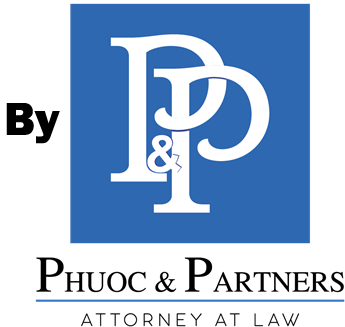
Common Debt Collection Methods
In business operations, encountering delayed or non-payments is inevitable. Debt collection is a persistent issue that requires not only patience but also smart application of appropriate measures to ensure the enterprise’s rights without damaging other relationships. Various debt collection methods exist, each with its own advantages and disadvantages depending on the specific situation of each debt. This article delves into the common debt collection methods today for businesses to consider applying.
1. What is debt collection?

Debt collection for an enterprise is the process of managing and resolving delayed debts from customers or business partners, requiring the payment of overdue amounts or other assets as per the contract/agreement between the parties.
Debt collection is crucial for ensuring the enterprise recovers the lent funds that customers or partners have not paid on time. It not only plays a key role in maintaining cash flow for business operations but also ensures the financial stability and safety of the enterprise, helping it operate efficiently and minimise risks in business activities.
2. Soft debt collection method
It is a method to recover debts with negotiation and persuasion skills through influencing the debtor emotionally and psychologically to successfully recover the debt, while still ensuring a good relationship with customers. When conducting the soft debt collection method, businesses can directly implement it, or through a law firm so that people with expertise can effectively take charge of the problem. This method is usually applied when a new debt arises, the overdue payment period has not been extended or there is still a business relationship between the enterprise and the debtor.
2.1. Remind letters

A remind letter is one of the first steps in the debt collection process. It is a gentle approach that reminds debtors of their debt repayment obligations. Remind letters can be sent via email or traditional mail, clearly stating the amount owed, the payment deadline, and the possible consequences of not fulfilling the debt repayment obligation. The use of polite and professional language in the reminder letter helps to maintain a good relationship with the debtor, while increasing the likelihood of successful debt collection.
2.2. Phone calls

A phone call is the next step if the remind letter doesn’t yield results. Direct phone calls to debtors help increase personalisation in the debt collection process. During the call, the debt collector can clearly explain the details of the debt and listen to the reason for the delay from the debtor. This provides an opportunity to agree on a new repayment plan or extend the repayment period reasonably.
In most cases, the process of direct contact with debtors by the soft debt collection method is often long. Therefore, each negotiation process with the debtor is very important. The person in charge of debt collection of the enterprise needs to have negotiation skills and understand what needs to be done in each process. The attitude of debt collectors needs to be open, gentle, and hit the heart of the problem when communicating with debtors. This is still considered a negotiation stage, so it is recommended to limit the mention of specific legal provisions, especially not to have a threatening attitude to debtors.
3. Hard debt collection method
This is a measure used when efforts to negotiate through the soft debt collection method are ineffective. The disadvantage of this measure is that it wastes time, effort and finance of both creditors and debt bearers. Therefore, if the debtor has a cooperative attitude, is willing to make payments or has the ability to have an impact on the debtor, the enterprise should prioritise debt collection by the soft debt collection method and should consider these hard debt collection methods as the last option.
3.1. Legal action

When soft debt collection methods do not yield results, legal action may be the last resort. This includes filing a lawsuit against the customer in court or arbitration center. To proceed, businesses need to prepare litigation documents, including contracts and related documents.
However, businesses that initiate debt collection lawsuits on their own need to firmly grasp the legal provisions related to the debt to be recovered. Poor management due to lack of legal knowledge can lead to a number of the following problems:
- Create opportunities for debtors to disperse assets in time, making the possibility of enforcing judgments or decisions not high;
- The contents of the lawsuit petition do not cover all debts, compensation for damages, lawsuits for improper purposes, leading to the refusal of the competent authority to settle or the inability to fully settle their legitimate rights and interests;
- Failing to prove the lack of debt of the borrower…
While an effective way to recover large debts effectively, legal action is still likely to be costly in terms of time and expense. Therefore, to ensure that the decision to initiate a lawsuit is correct or to ensure that the lawsuit process takes place more smoothly and saves more in terms of time, businesses can choose the option of using a law firm for the best support.
3.2. Use of legal service providers
A law firm is one of the professional legal service providers that can provide businesses with advice and services to achieve the purpose of debt collection of businesses. Law firm has the experience and skills in negotiating and applying the necessary measures to recover debts. In addition to law firms, some other units can also support businesses in debt collection such as law offices; organisations with the function of handling legal debts.
Using a suitable legal service provider will help businesses save time and focus on key business activities.
An effective legal service provider can assist businesses with issues related to debt collection such as:
- Advising on measures and methods of debt collection in accordance with the law;
- Advising and assessing the overall debt principal, interest, fines according to contracts/agreements, legal and reasonable compensation for damages;
- Recommending the optimal debt recovery plan; representing and negotiating with the borrower on behalf of the enterprise to recover the debt;
- Advising and supporting businesses to prevent borrowers from dispersing assets;
- Advising businesses on conditions, procedures, and processes for initiating debt collection lawsuits, drafting lawsuits, supporting creditors in the process of initiating debt collection lawsuits;
- Advising and supporting enterprises in working with judgment enforcement agencies in cases where the borrower refuses to comply after the Court’s decision or Arbitration award has been issued;
- Instruct enterprises to submit denunciations to state agencies if there are signs of crimes committed by the debtor.
Currently, there are many units advertising debt collection services, especially on social networking platforms. However, many of these entities may be operating illegally or even fraudulently disguised as legal service providers for illegal profits. Conducting verification and verification of information about service providers to ensure the interests of enterprises wishing to use debt collection services is extremely important, no less important than choosing the optimal debt collection plan.
Each debt collection method has its own characteristics and benefits, suitable for each specific situation. The choice of method depends on the nature of the debt, the relationship with the debtor, and the urgency of debt collection. By combining common debt collection methods, including soft and hard debt collection methods, businesses can optimise the debt collection process, ensure financial stability, and maintain good relationships with debtors. The above is an overview of common debt collection methods. If you have difficulties in finding a Law Firm to advise and support in the relevant legal field, please contact us. Phuoc & Partners is a professional consulting firm established in Vietnam and currently has nearly 100 members working in three offices in Ho Chi Minh City, Hanoi and Danang. Phuoc & Partners is also rated as one of the leading consulting firms specialising in business law in Vietnam that has leading practice areas in the legal market such as Labour and Employment, Taxation, Merger and acquisition, Litigation. We are confident in providing Clients with optimal and effective service.

